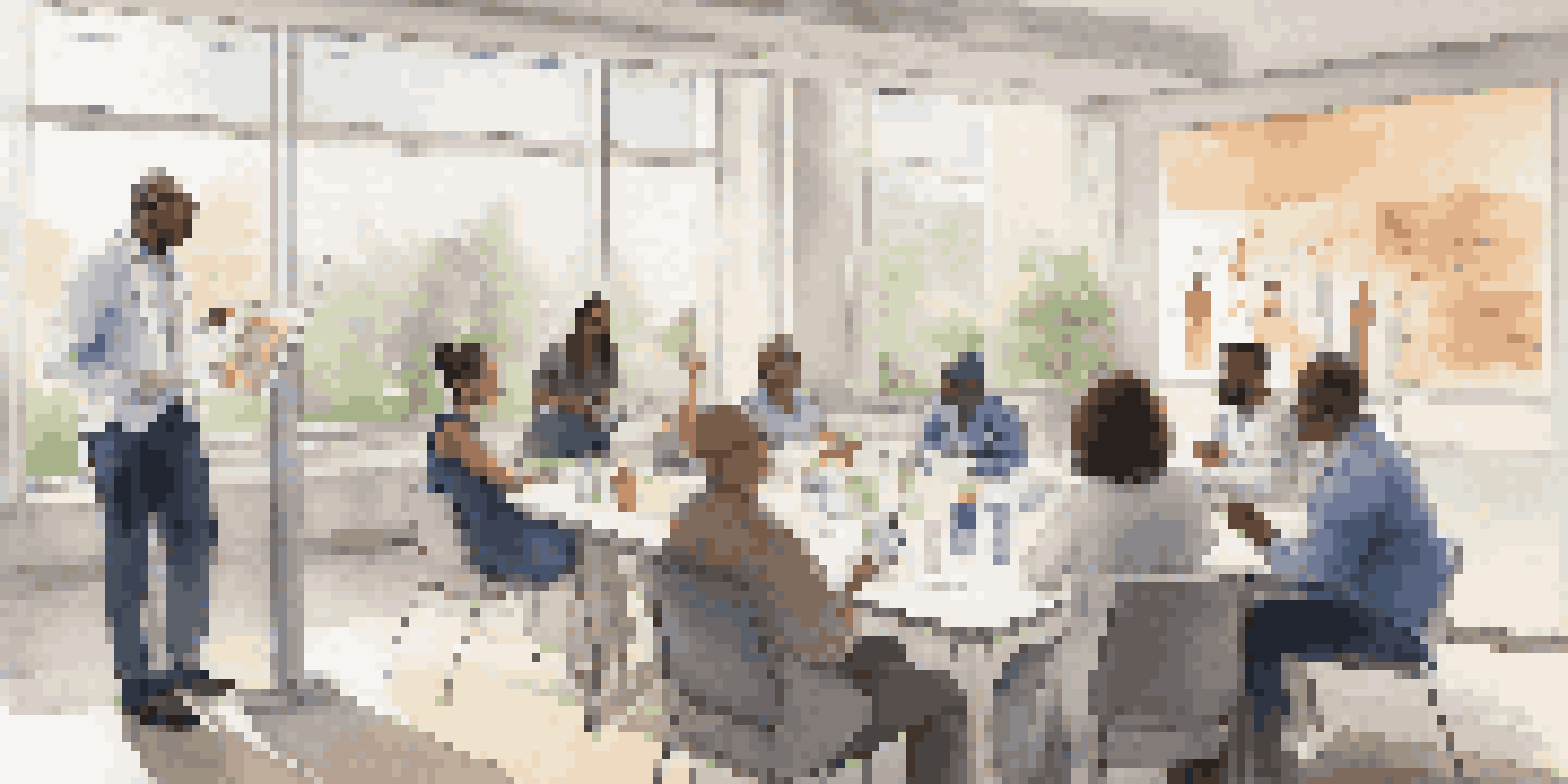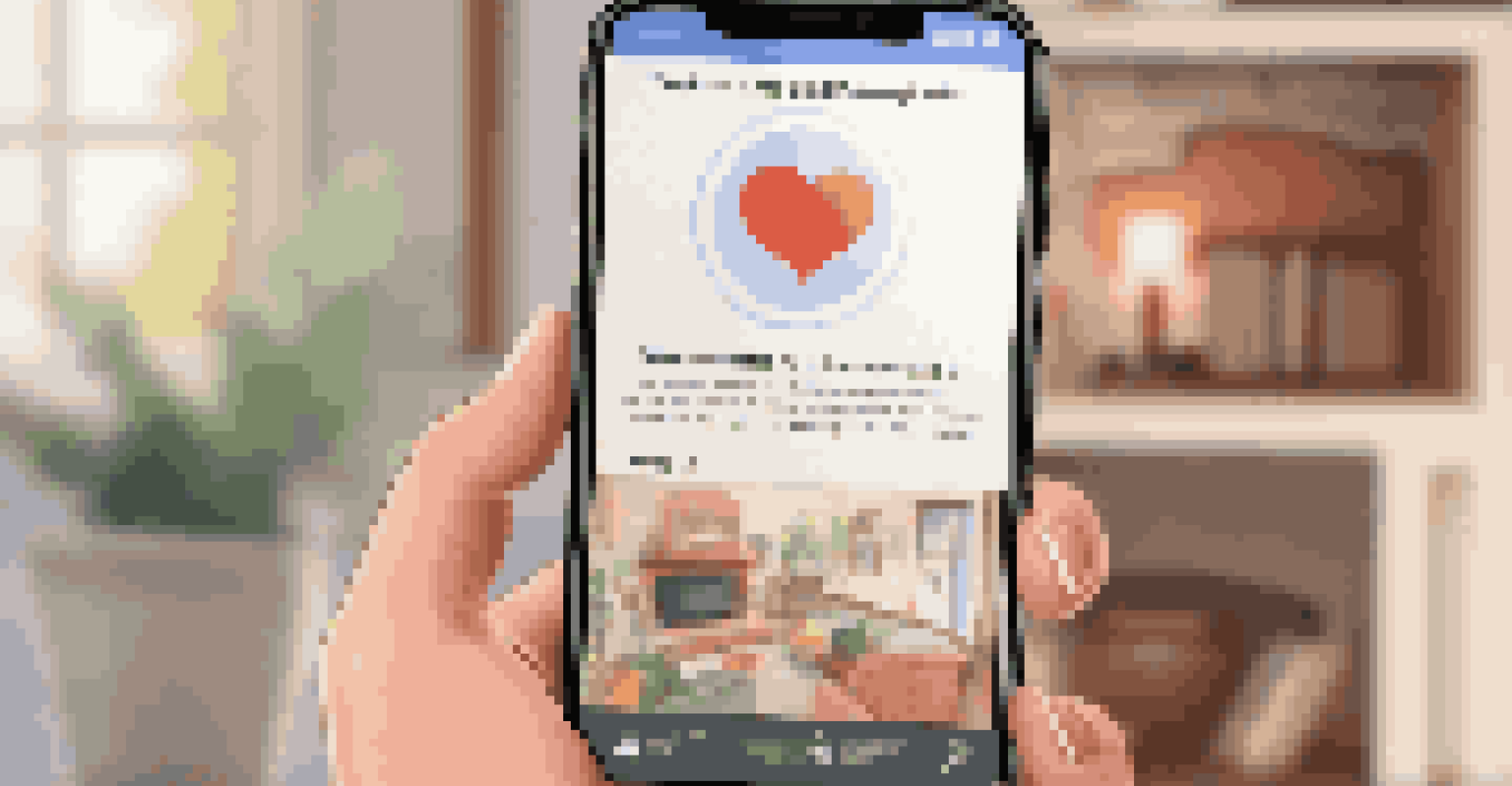Health Literacy and Decision-Making: A Guide for Patients

What is Health Literacy and Why It Matters
Health literacy refers to the ability to obtain, process, and understand basic health information. It’s not just about reading pamphlets; it’s about grasping complex medical terms and understanding your health conditions. This skill is crucial because it empowers patients to make informed decisions about their care.
Health literacy is a shared responsibility that requires active participation from both patients and healthcare providers.
Imagine trying to navigate a new city without a map or GPS. That's what being health illiterate feels like—you may find yourself lost in a maze of medical jargon and confusing instructions. Health literacy bridges this gap, helping you understand your health needs and the choices available to you.
When patients have higher health literacy, they tend to engage more actively with their healthcare providers, adhere better to treatment plans, and ultimately experience better health outcomes. In other words, understanding your health is the first step toward taking charge of it.
The Connection Between Health Literacy and Decision-Making
The decisions you make about your health can significantly impact your quality of life. When you understand your health conditions, medications, and treatment options, you can weigh the pros and cons more effectively. This informed decision-making process contributes to better health management.

Think about it this way: if you were choosing a car, you wouldn’t just rely on the first salesperson you meet. You’d do your research, compare options, and make an informed choice. Similarly, informed health decisions require you to gather and understand information about your health.
Health Literacy Empowers Patients
Understanding health information enables patients to make informed decisions about their care.
In essence, health literacy equips you with the tools to ask the right questions, seek second opinions, and ultimately choose the best path for your health journey.
Barriers to Health Literacy in Patient Populations
Despite the importance of health literacy, many individuals face barriers that hinder their understanding. These can include language differences, low educational attainment, or even cognitive impairments. Such obstacles can make it difficult for patients to grasp essential health information.
The ability to learn and understand health information is crucial for making informed decisions about one’s health.
For instance, consider a patient who speaks a different language than their healthcare provider. Without proper translation, they may miss vital information about their diagnosis or treatment. This lack of understanding can lead to poor health outcomes and increased anxiety.
Additionally, healthcare systems often use complicated jargon that can alienate even the most educated patients. Simplifying communication is crucial, as it ensures all patients have the opportunity to comprehend their health information.
Strategies to Improve Health Literacy for Patients
Improving health literacy is a shared responsibility between patients and healthcare providers. Patients can take proactive steps by asking questions, seeking clarification, and using resources like reputable websites or support groups to enhance their understanding. It’s okay to admit if something is unclear.
On the provider side, using plain language and visual aids can significantly improve communication. Think of how a diagram can make complex information more accessible. Additionally, encouraging a culture of open dialogue can empower patients to express their concerns and seek further explanation.
Barriers Hinder Health Understanding
Language differences and complex jargon can prevent individuals from grasping essential health information.
Both parties must work together to foster an environment where health literacy thrives, ultimately leading to better health outcomes and more satisfied patients.
The Role of Technology in Enhancing Health Literacy
In our digital age, technology plays a pivotal role in improving health literacy. Mobile health apps, educational videos, and online forums provide patients with easy access to health information. This wealth of resources can empower individuals to take charge of their health in a way that was not possible before.
For instance, a patient diagnosed with diabetes can use an app to track their blood sugar levels and access information on managing their condition. This not only helps them make informed decisions but also encourages active participation in their care.
However, it’s essential to ensure that the information found online is credible. Patients should seek resources from trusted organizations and consult with healthcare professionals when in doubt.
Empowering Patients Through Education and Support
Education is a powerful tool in enhancing health literacy. Healthcare providers can offer workshops, brochures, or one-on-one sessions to educate patients about their conditions. This knowledge can demystify the healthcare process and empower individuals to make informed decisions.
Moreover, support groups can provide a sense of community and shared experience. Hearing from others who have faced similar health challenges can offer insights and encouragement, making the journey feel less isolating.
Education and Support Are Key
Workshops and support groups enhance health literacy, fostering informed and engaged patients.
When patients feel supported and informed, they're more likely to engage actively with their healthcare, leading to better health outcomes and enhanced quality of life.
Conclusion: The Importance of Health Literacy in Healthcare
In conclusion, health literacy is a critical component of effective healthcare. It empowers patients to understand their health, make informed decisions, and ultimately improve their well-being. As we navigate an increasingly complex healthcare landscape, prioritizing health literacy will benefit both patients and providers.
Just as we wouldn't drive a car without knowing how to operate it, we shouldn't manage our health without understanding it. Health literacy equips individuals with the knowledge they need to take control of their health journeys.

By fostering a culture of understanding and support, we can ensure that everyone has the opportunity to thrive in their health and well-being.